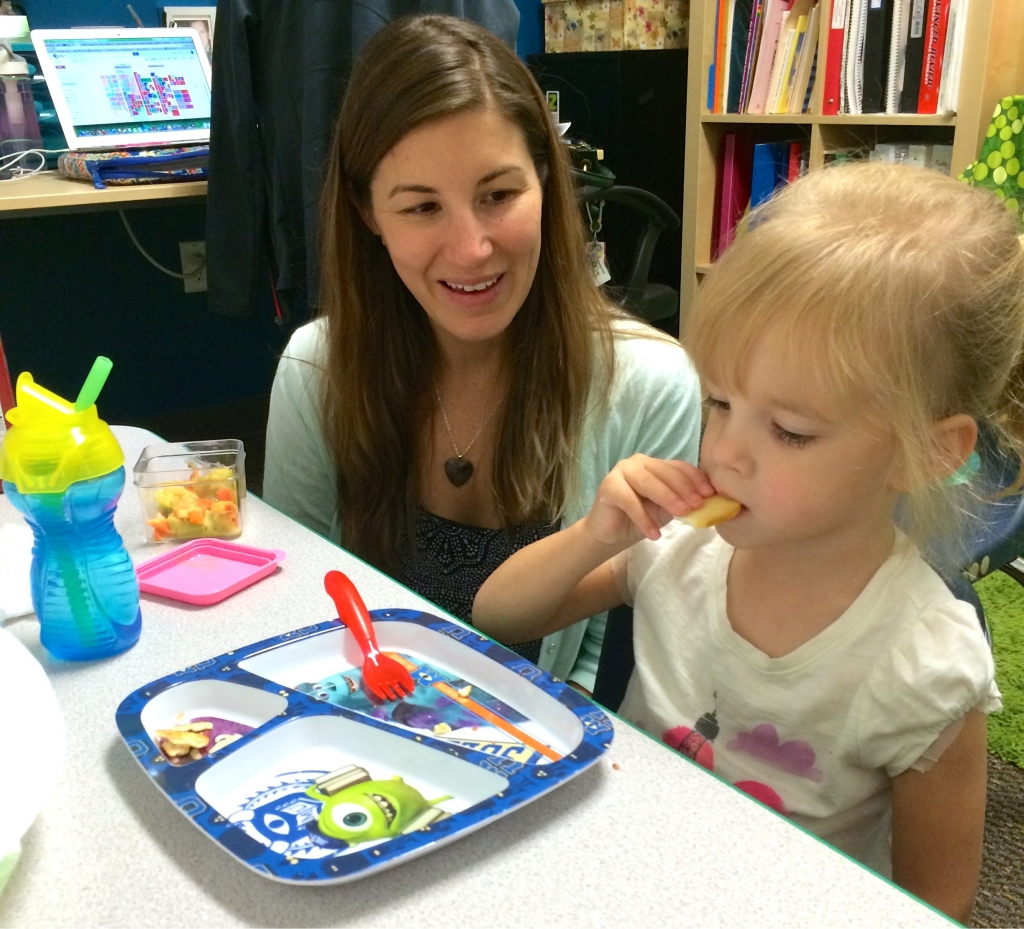Feeding and Swallowing Therapy
What is Feeding and Swallowing Therapy?
According to the American Speech-Language-Hearing Association (ASHA), the primary goals of feeding and swallowing intervention for children are to:
- safely support adequate nutrition and hydration,
- determine the optimum feeding methods/technique to maximize swallowing safety and feeding efficiency,
- collaborate with family to incorporate dietary preferences,
- attain age-appropriate eating skills in the most normal setting and manner possible (i.e., eat and chew meals with peers in the preschool),
- minimize the risk of pulmonary complications,
- maximize the quality of life,
- prevent future feeding issues with positive feeding/oral experiences as able given medical situation,
- help the child eat and drink efficiently and safely to whatever degree is possible.
Medical, surgical, and nutritional considerations are all important components of a treatment plan….Underlying disease state(s), chronological and developmental age of the child, social/environmental arena, and psychological/behavioral factors all affect treatment recommendations.
During feeding and swallowing therapy, our Speech Language Pathologist will address any oral-motor functions, such as the positioning, muscle tone, seating, and/or sensory issues, by providing an intervention that strictly emphasizes on developing the particular areas of concern. The type of approach previously mentioned prioritizes developing those specific skills while minimizing the likelihood that a maladaptive or inappropriate behavior will occur.
What can an SLP do for my child with feeding and swallowing problems?
Children with feeding and swallowing problems have a wide variety of symptoms. Not all signs and symptoms are present in every child. An SLP will help identify what part of the swallowing process is making it difficult for your child to eat (e.g., chewing, manipulating food with the tongue, coordinating mouth and throat structures and muscles, breathing appropriately while eating, or strong food aversions).

First Leap Offers a Free 30 Minute Consultation


